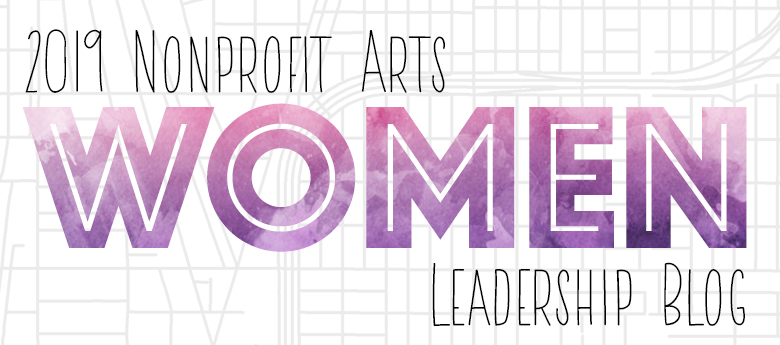
Although we’d like to believe that the arts and culture sector does better than other fields, sexism remains pervasive—but not unconquerable. Throughout my career in the nonprofit and arts sector, I have been told that: I should describe myself as aspirational, not ambitious; women in their twenties weren’t good hires because they are only fully formed after they married; I wouldn’t be promoted into a permanent position because having just had a child would make me less committed to my work; and other comments of a nature too personal. Small, demoralizing comments meaning, “You just don’t measure up to your male colleagues.” This inappropriate behavior from men reflected staffing power dynamics, but also sadly with lay leadership and volunteers. I considered much of it harmless, or to be expected. I put up with, ignored, deflected, or laughed it off to avoid embarrassment on both sides.
One of the biggest impediments for me in the workplace was being invisible when my contributions were novel, challenging, or creative. Talk to almost any woman in the workplace and I bet she has “that” story: speaking up in a meeting where your idea falls flat, only to have it repeated to great applause by a male colleague ten minutes later. It does make you feel a little crazy; just ask poet Claudia Rankine about her experiences as a faculty member where David Foster Wallace acted as her ally in calling out the slight, or even the women in President Barack Obama’s administration who made a pact to act as allies for one another in cabinet meetings.
While the arts sector has not been a leader in breaking this cycle, it should be. Judging from current trends, emerging female leaders inspire me to believe that we can get ahead of the curve. The women I see are impatient with injustice, confident, smart, and resilient.
Being a leader in the arts and working with creative, entrepreneurial women, I don’t see them juggling their careers, personal lives, and artistic practices as much as doing what Mary Catherine Bateson describes as “composing” them. Her book, Composing a Life, documents the path of several successful women:
"Composing a life has a metaphorical relation to many different arts, including architecture and dance and cooking. In the visual arts, a variety of disparate elements may be arranged to form a simultaneous whole, just as we combine our simultaneous commitments. In the temporal arts, like music, a sequential diversity may be brought into harmony over time. In still other arts, such as homemaking or gardening, choreography or administration, complexity is woven in both space and time.
It is not necessary to follow the “traditional” approach, and today with technology and a small world it isn’t as successful anyway. In the past, our aesthetic sense, whether in works of art or in lives, has overfocused on the stubborn struggle toward a single goal rather than on the fluid, the protean, the improvisatory." (Bates)
Women are particularly adept at the improvisatory. This skill is more understood or valued in creative circles. Careers are not experienced as linear, but rather they are layered, painted together, and embroidered.
This has been a joy in my professional journey as a woman. There are technical and mechanical tools and experiences required for success, but as important in my view is an ability to understand the connective tissue—how different, seemingly unrelated factors are bound into an understanding of the whole. It also makes it possible to consider management from the perspective of the whole person. I welcome the intersections of personal and private lives in the workplace, and value the ways in which staff at the Greater Baltimore Cultural Alliance are sometimes good at their jobs because they are artists, or because they are social justice warriors, or because they are human beings who like to sing, surprise, and love other people as they walk through the world. I am an optimist. Even though present politics try my patience, they also signal me that the arts—and particularly women in the arts—have an evanescent and enlightened contribution to make, and examples to set for the future.
#nonprofitartswomenrock


